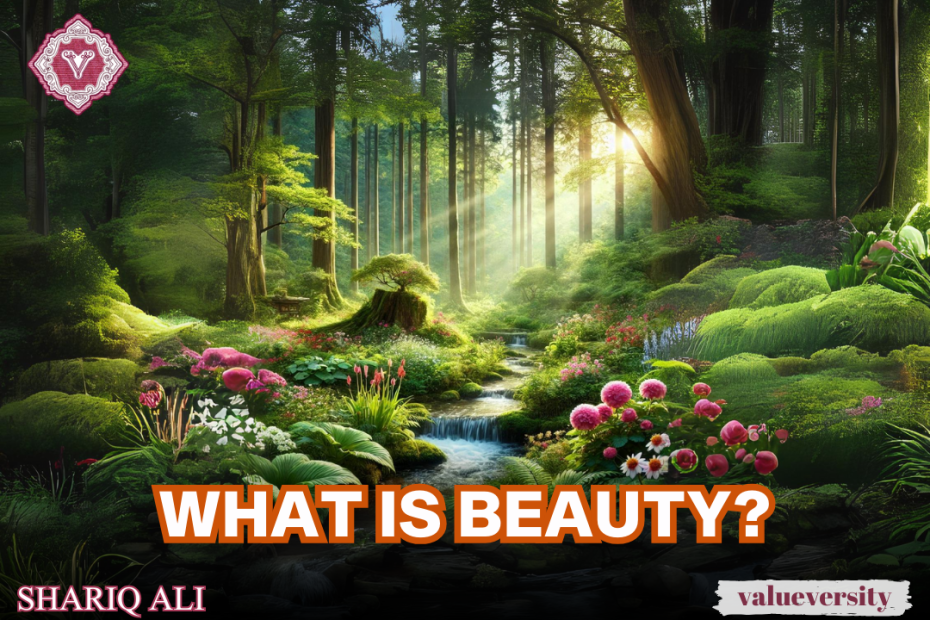What is Beauty?
Frequently Asked Questions About Life
By Shariq Ali
Valuversity
Is beauty an inherent characteristic, or is it a reality shaped by the observer’s perception? This debate has long persisted: whether beauty is an intrinsic quality of objects or a creation of human consciousness. Philosophical and scientific discussions on this topic have been ongoing for quite some time. According to Immanuel Kant, beauty is not a natural attribute of things but an experience that arises from the mind’s interaction with the world. From this perspective, our aesthetic responses are personal and are shaped by mental and cognitive understanding rather than the properties of objects themselves.
On the other hand, evolutionary psychologists believe that concepts of beauty are linked to biological needs. They suggest that elements of beauty, such as symmetry or a certain proportion found in nature, have been evolutionarily advantageous for survival and reproduction. This view aligns with Charles Darwin’s ideas of sexual selection, where aesthetic preferences play a crucial role in mate choice, thereby influencing genetic traits across generations.
Moreover, philosophers like Bertrand Russell have also reflected on this idea. According to Russell, the appreciation of beauty in human creativity, the arts, and nature appears to be an expression of a profound mental and emotional capability, transcending mere survival instincts. Russell notably equated the beauty found in mathematics with that in the fine arts. For him, human concepts of beauty encompass a universal standard that reflects both cultural and intellectual dimensions.
This question, and the search for its answer, collectively highlight the complex interaction of biological, psychological, and cultural factors in shaping human experiences of beauty. The ongoing dialogue between philosophers, scientists, and artists further deepens our understanding of why beauty has such a profound impact on human emotions and intellect. It is possible that the true essence of beauty is not only linked to survival but also to higher mental functions or spiritual experiences.
